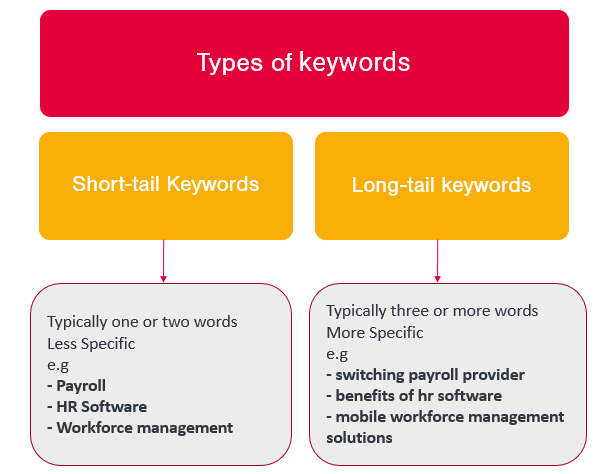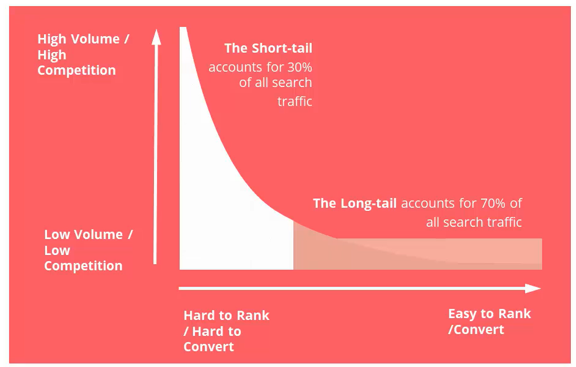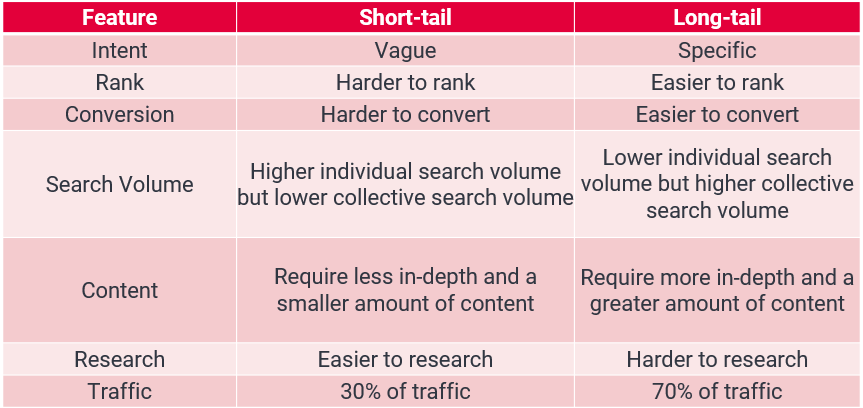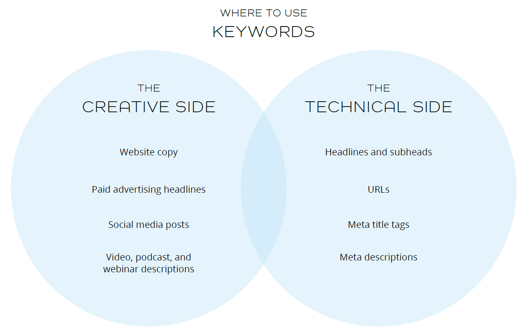Types of Keywords
Type of Keywords. Short-tail keywords (seed keywords, broad keywords, or head keywords) They are typically one or two keywords. They tend to be less specific, or quite generic. For e.g Payroll. Long-…
Type of Keywords
- Short-tail keywords (seed keywords, broad keywords, or head keywords)
They are typically one or two keywords. They tend to be less specific, or quite generic. For e.g Payroll. - Long-tail keywords - These keywords are more specific and are often literally longer, three+ words or phrases. They have a lower volume of searchers, but increased relevancy
- Focus Keywords - This is the main keyword that you want a certain page or post to rank for on search engines. It could be either a seed or long-tail keyword.
- Keyword variations - As it sounds, these are closely related to your focus keyword but just a little different.
- Keyword clusters or Topic clusters - are an advanced SEO strategy where you develop groups of related keywords for content that supports pillar pages on your website.

Short tail vs long-tail keywords
Now if nwe look at this graph, we can see on the left side, that we've got short-tail keywords. And this accounts for round 30% of all search traffic. And individually, these keywords have high search volume, so things like "payroll", or "onboarding", but they also have high competition.
As shown in the figure below, long-tail keywords are easy to rank/convert and contains low volume/low competition
Short-tail keywords are harder to rank/converts and they have high volume/high competition.
NOTE: For our SD WORX websites, we recommend using long-tail keywords.

Now to the right of this graph, we can see that there's around 70%, of all search traffic comes from long-tail keywords. So these are keywords that individually have less search volume but collectively account for a large chunk of the search traffic.
Key Differences between long-tail and short-tail keywords

Where to use keywords

Perform a quick Keyword Research
On-Page Optimisation Checklist
What is Internal Linking - Best Practices
How did we do?
Internal Linking - Best Practices
SEO Dashboard

